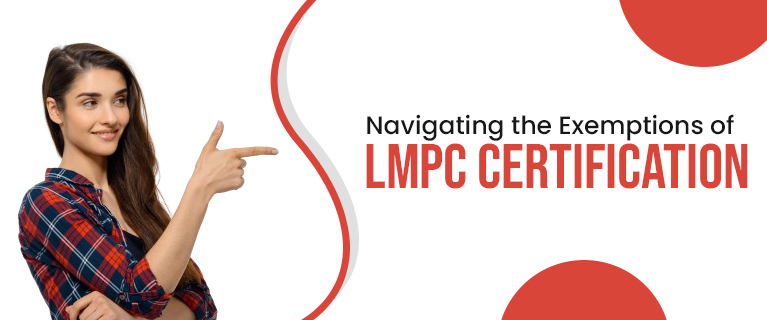Navigating the Exemptions of LMPC Certification
In the dynamic landscape of international trade and commerce, the adherence to legal and metrological standards stands as a pivotal foundation for businesses. The Legal Metrology Packaged Commodities (LMPC) Certification serves as a comprehensive framework, ensuring the integrity and accuracy of packaged goods. However, within this regulatory tapestry, exceptions carve a significant niche, allowing for specific products to be exempted from the certification requirement.
Navigating the intricacies of these exemptions is paramount for businesses aiming to comprehend the nuanced landscape of product certification. It is a strategic imperative for enterprises to discern which goods necessitate rigorous LMPC Certification and, conversely, which enjoy exceptional status. This nuanced understanding not only fosters regulatory compliance but also streamlines operational efficiency and market competitiveness.
As businesses grapple with the complexities of international trade, a nuanced grasp of these exemptions becomes a linchpin in decision-making processes. Whether dealing with intricacies of cross-border transactions or ensuring conformity within diverse markets, this comprehension of certification exemptions emerges as a cornerstone for enterprises striving to harmonise with global standards while strategically positioning themselves in the ever-evolving realm of commerce.
Read also this -: The Profound Impact of LMPC License on ImportersExploring LMPC Certification Exemptions
The LMPC Certification, which typically ensures that packaged commodities meet legal and metrological standards, may not be universally applicable. There are circumstances where certain products or industries enjoy exemptions from this certification process.
1. Unpackaged Goods:
In some jurisdictions, goods sold without packaging, such as fruits and vegetables, may be exempted from LMPC Certification requirements. This exemption recognizes that certain products are sold by quantity rather than weight or volume and may not require the same packaging standards.
2. Customized Packaging for Large Orders:
Businesses dealing with bulk orders or specialized packaging for a specific client might find exemptions for LMPC Certification in some cases. This recognizes the unique nature of such transactions and the customization involved.
3. Products for Export Only:
Goods that are produced solely for export and not intended for retail sale in the domestic market may be exempt from LMPC Certification. This exemption acknowledges that the destination country's regulations will govern the packaging and labelling standards.
4. Limited-Time Exemptions:
Some jurisdictions may grant temporary exemptions for certain products during specific events or seasons. This could include holiday-specific packaging or promotional campaigns where standard certification requirements are temporarily relaxed.
5. Niche or Specialized Industries:
Certain niche or specialized industries may have their own set of regulations, and the LMPC Certification may not be applicable to all products within these sectors. Exemptions recognize the unique circumstances of these industries.
Applying for LMPC Certification Exemptions:
1. Review Local Regulations:
Businesses should carefully review the regulations of the importing and exporting countries to identify if their products fall under any exemption categories.
2. Consult Regulatory Authorities:
Seeking guidance from the relevant regulatory authorities is crucial. They can provide clarity on whether a specific product qualifies for an exemption and the steps involved.
Read also this -: Detailed Guide To Get Lmpc Certificate For Import Online3. Documentation and Proof:
Justifying the need for an exemption often requires comprehensive documentation. This may include providing evidence that the product meets alternative standards or falls within a recognized exemption category.
Conclusion:
While LMPC Certification is a standard requirement for many packaged commodities, understanding the exemptions is equally important for businesses. Navigating these exemptions requires a careful examination of local regulations, consultation with regulatory authorities, and the submission of relevant documentation. By staying informed about these exceptions, businesses can ensure compliance with the law while also recognizing circumstances where certain products are rightfully exempted from the LMPC Certification process.




Comments
Post a Comment